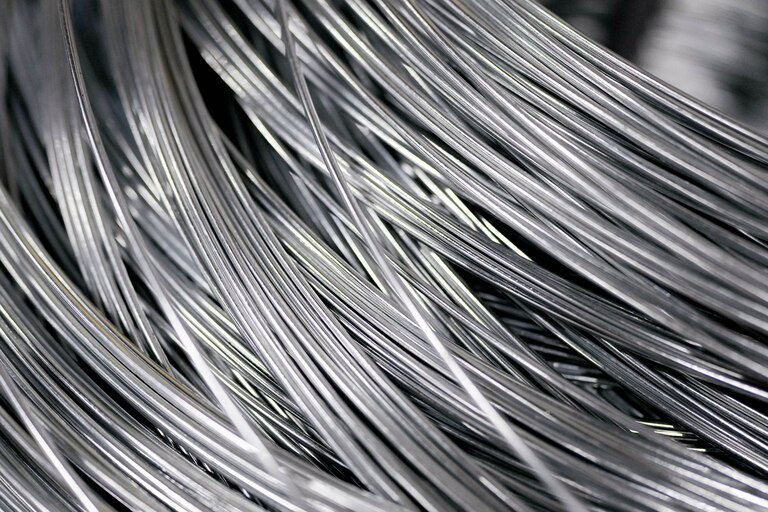One of Baltimore’s biggest tariff lovers hosted a top Trump administration official at his steel fabrication plant Friday morning.
Drew Greenblatt gave a tour of Marlin Steel in South Baltimore to Kelly Loeffler, the new head of the Small Business Administration.
Trump’s tariffs have caused the stock market to whipsaw and stoked fears of a recession, but Greenblatt and Loeffler said these taxes on imports are long overdue.
“We’ve seen unfair trade policy hollow out working class America, [we’ve] lost 90,000 factories, 5 million jobs,” Loeffler said, standing next to Greenblatt. “Drew and President Trump are working to reverse that trend.”
Loeffler visited Baltimore as part of her agency’s Made in America Manufacturing Initiative, which aims to boost domestic manufacturers through a mix of deregulation and financing programs — and to rally support for Trump’s tariff policy.
While tariffs might be welcome by some manufacturers, they could devastate other parts of the economy and cause a global trade war. Economists warn tariffs will raise the price of consumer goods, cause inflation and force companies to lay off workers.
Read More
But supporters like Greenblatt see tariffs as the only way to resurrect American manufacturing.
In addition to its facility in Cherry Hill, Marlin Steel has plants in Indiana and Michigan, employing more than 100 people to fabricate a variety of steel products for the medical, aerospace and food processing industries.
While much of the world’s steel comes from China, Greenblatt said Marlin uses recycled steel made in America. That’s why he feels confident his company will grow under tariffs, even as economists and bankers increasingly think a recession could be around the corner.
Greenblatt is not alone.
One of America’s largest manufacturing unions, the United Auto Workers, virulently opposes many of Trump’s labor policies, but has come out in support of tariffs. Used correctly, the union believes they can jumpstart American manufacturing.
To Greenblatt, this is because tariffs are about fairness, not politics.


Until now, global trade has been unfair to America, he said. Many foreign companies ignore environmental rules, don’t pay fair wages and benefit from generous public subsidies, Greenblatt said, allowing them to flood the U.S. with cheap goods.
Making matters worse is that other countries have tariffs on American goods, he said, which means it’s even harder to compete in foreign markets.
Trump’s tariffs can create a “level playing field,” Greenblatt said.
Still, it’s too early to know how the president’s ever-evolving policies will ultimately impact companies like Marlin Steel.
Greenblatt said his biggest competitor is a Canadian company that buys its steel from China. Right now, Trump is ratcheting up tariffs against China while de-escalating tariffs against Canada.

That means Marlin’s Canadian foe might benefit from cheap Chinese steel while eluding the worst of the tariffs. But nothing is for certain.
Since taking office, Trump has repeatedly imposed, reversed and renegotiated tariff policies on much of the rest of the world. This week, he abruptly changed course and abandoned his administration’s talking points after markets got “a little bit yippy.”
Despite round-the-clock coverage of global stock markets, Greenblatt said the public relations battle over tariffs will be won by the manufacturers, not the economists or academics.
He echoed a point made recently by U.S. Treasury Secretary Scott Bessent: That a relatively narrow portion of Americans — the rich — own the vast majority of the companies represented in the stock market. Many American households, especially working-class households, are more concerned about paychecks than stock portfolios, Bessent said on Monday.
Greenblatt made the same argument Friday.
“I don’t care about Wall Street,” he said. “I care about pulling people up from Remington, pulling people up from Sandtown, giving them a middle-class job.”





Comments
Welcome to The Banner's subscriber-only commenting community. Please review our community guidelines.